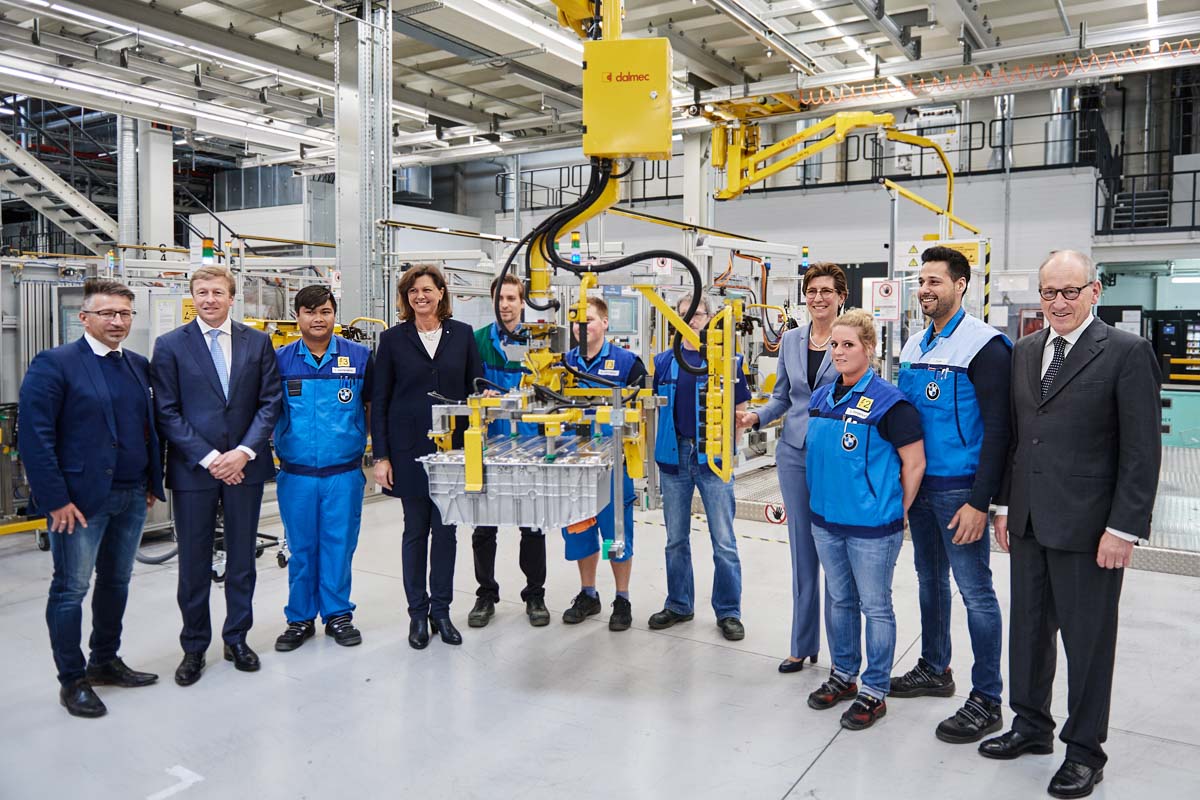BMW is one of the longest established car manufacturers in existence. We visit two of its Bavarian factories to find out how it does things.
BMW might build 2.3 million cars each year, but it’s still only a fifth of the size of the world’s biggest companies. Toyota, for example, steadily makes 10 million vehicles every 12 months – on a similar level to the Volkswagen Group, close to Nissan-Renault, and slightly ahead of Hyundai/Kia and GM at just shy of 8 million apiece.
So in the grand scheme of things, BMW could be considered ‘mid-size’ as a manufacturer. Even then, it has 34 production plants all over the world – two of which we recently visited where 4,600 and 3,100 employees work respectively. The larger of the two, Dingolfing, which makes the 3-to-7 Series models, dispatches a car every 36 seconds – so many that it might beg the question of why they are so expensive.
The Dingolfing plant also counts 450 robots on staff, with a centralised monitoring system that enables control of which production steps are being completed, for what, for whom and for where. The factory is actually scaling back from Industry 4.0 (the integral control system where all the processes are communicating with a central brain, and recording all sorts of data and alerts) in some processes because the analytics have not shown any quantifiable improvement to the production process. While so many other manufacturers are trying to get there, BMW is already on its way back.
Also in line with latest robotic trends, BMW is working in the field of collaborating robots. In perspective, regular robotic production is done in cages where humans are not allowed – probably a good policy as the standard automotive automaton has a 240kg payload capacity, no eyes and no brain. And they handle large metallic parts and tools that are either very sharp, or very hot. The collaborative robot on the other hand, works alongside people, performing different tasks. At BMW they are used for visual inspection of how the doors fit with the rest of the bodies. You know, a 5mm seam is ok but 7mm means a recall.
As you might imagine, making a car is an expensive process and one that requires vast amounts of power. Aware of its corporate responsibility, and surely aided by pollution regulations, BMW is on a powerful drive to reduce its carbon footprint, investing heavily in renewable energies, recycling, co-generation and self generation. It’s important to note that plant developments take into account, among many other factors, the availability of clean energy on site.
BMW displays striking automation capabilities and particularly impressive is the flexibility of its production lines, the Dingolfing line handling the 3, 4, 5 and 6 series in both saloon and GT formats simultaneously. Add to this the made-for-customer arrangement, as opposed for stock, and the complication on the entire supply chain becomes mindboggling.
We also had the opportunity to visit the Landshut plant, which makes shafts, carbonfibre elements and aluminum components. Expecting dark, dirty, hot and murky surroundings, evoking images of furnace-feeding men, we find a rather clean factory with furnaces and autonomous carts that, fortunately for visitors, detect human presence and stop to avoid tragedy and the subsequent paperwork.
The i-Series models are made here, too. And as much as has been written about the i8 supercar, the little i3 is no less interesting. BMW, in another display of social and environmental responsibility, has made the car to be 97 per cent recyclable. Alas, this fantastic vehicle only offers about 200km of range and, with our local aircon requirements, this may be a bit too short. That said, we are likely to see it around our parts towards the end of 2018, probably fitted with a BMW-trademarked ‘range extender’.
Apart from manufacturing essential components for the entire BMW range, Landshut also belongs to the BMW Development Network. This means they actually do research here in combination with another 34 distributed research centres in the BMW family. As such, they seek cooperation programs with local universities and technical colleges for everything from material development, to production enhancements and AI. They even churn out skilled technicians for the rest of the vast German automotive industry.
While making great strides in automation, BMW is implementing an ergonomics program named Today for Tomorrow. With it the company focuses on the longevity of its factory workers and how to enhance productivity while reducing the risk of injury. This program is evidenced in various areas of the plant, such as the dashboard assembly area, in which we see wood tiled floors. These, apparently, are softer on the knees and prevent a whole host of physical injuries. Or the safety chair for the assembly of the rear seats and fittings, also to prevent injuries.

The programme also includes a set of exercises, fitness machines, hang bars and other equipment scattered around the production floor. BMW still has no hard data on the results of this provision but the workforce appears to be quite positive regarding the outcomes.
Germany being the epitome of work equality, it’s perhaps surprising that the female presence is all but nonexistent on the factory floor. The PR department at BMW may be 50 per cent female but the production facilities stand at 16.1 per cent at Dingolfing, and 12.1 in Landshut. It turns out that the 0.1 per cent in these numbers is crucial, as that is the increase in female presence from 2016 to 2017. If such a rate of increase is maintained, BMW will reach a 50 per cent ratio in 339 years’ time.
You might think that last comment is rather barbed but I had to find at least something to criticise. It’s quite inane, I agree, but now I can close with a clear conscience and a newfound respect for this brand. There is a great deal more to talk about and BMW is investing heavily in a wide variety of fascinating technologies, intelligence and products. We’ll have to leave those for another time, though.



